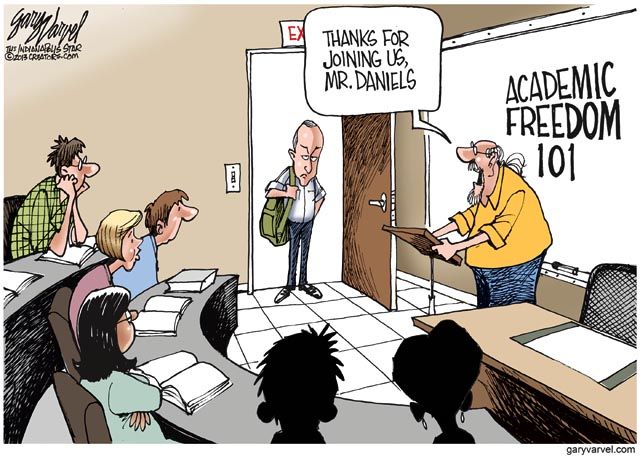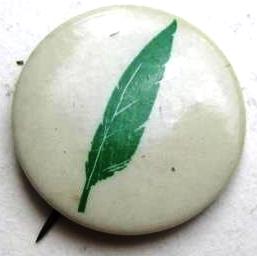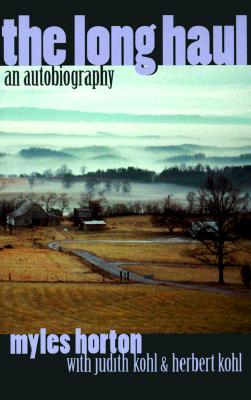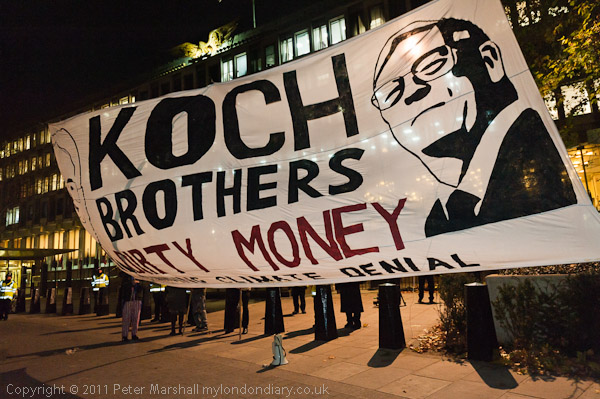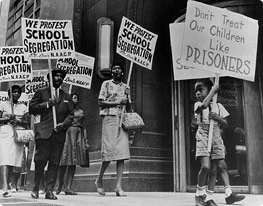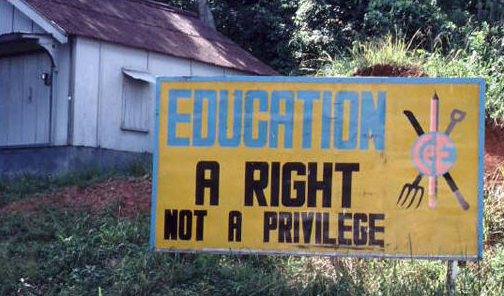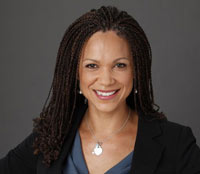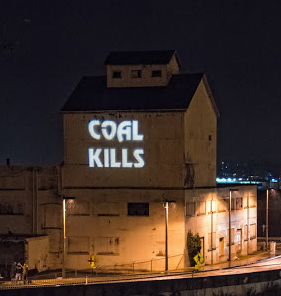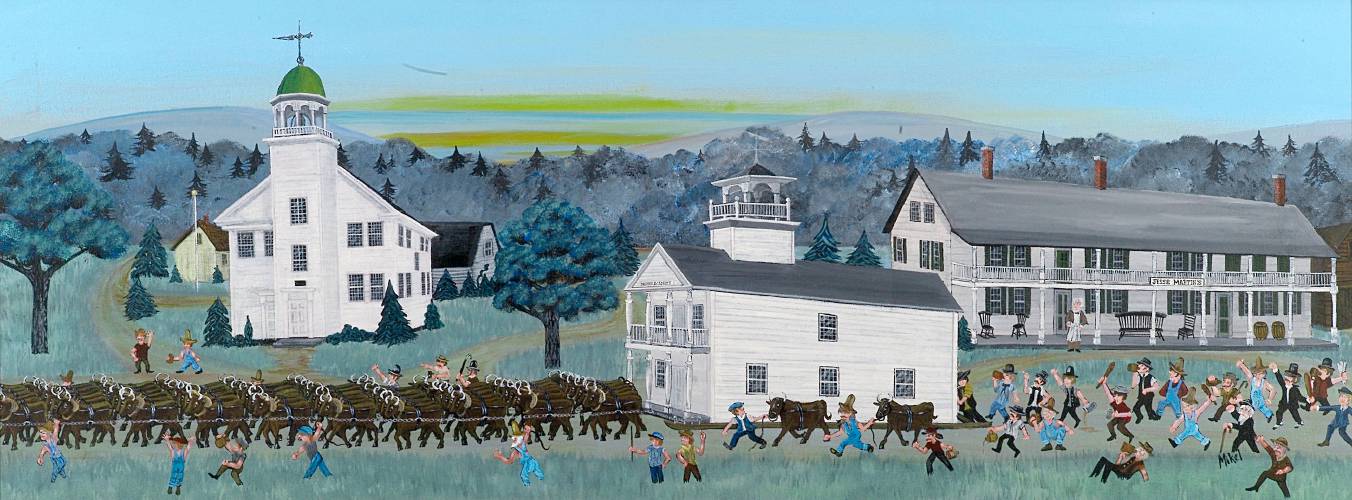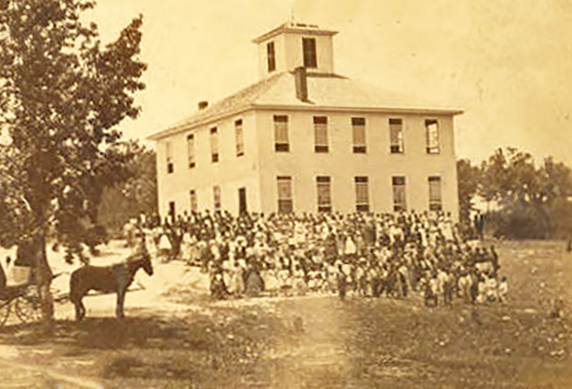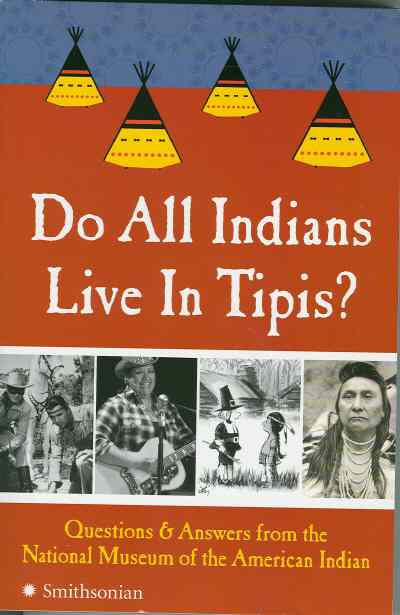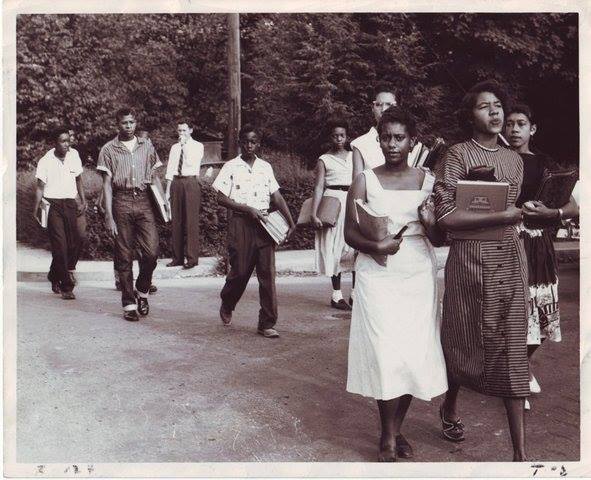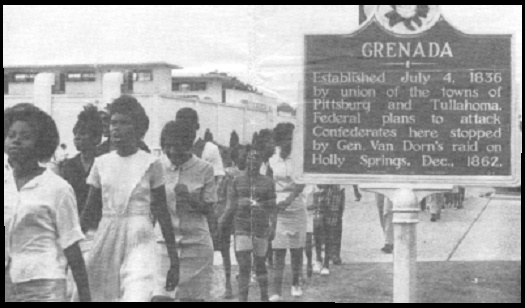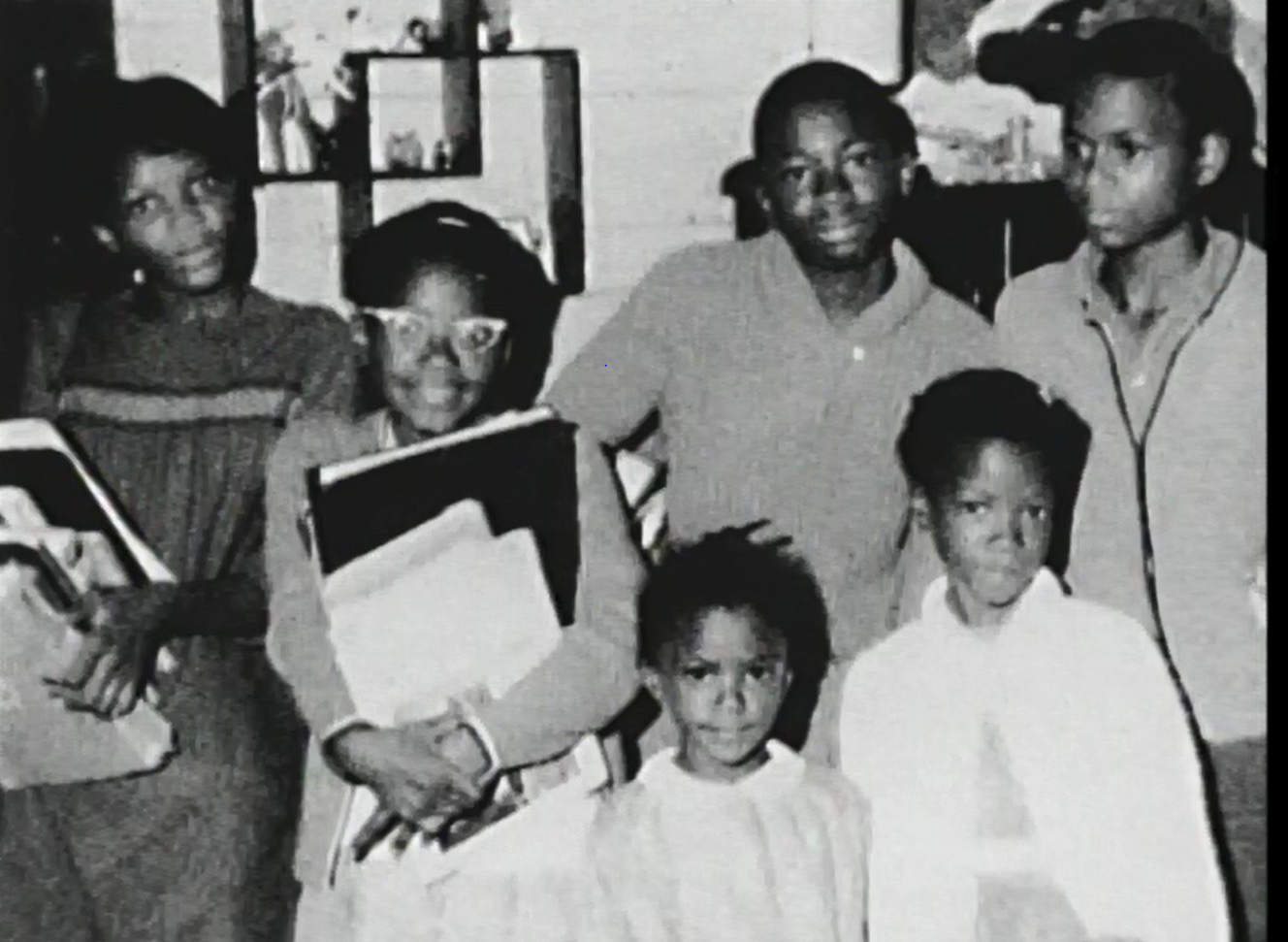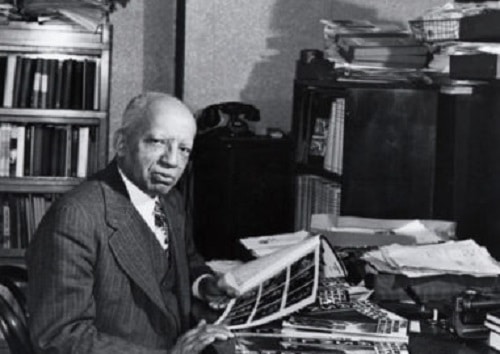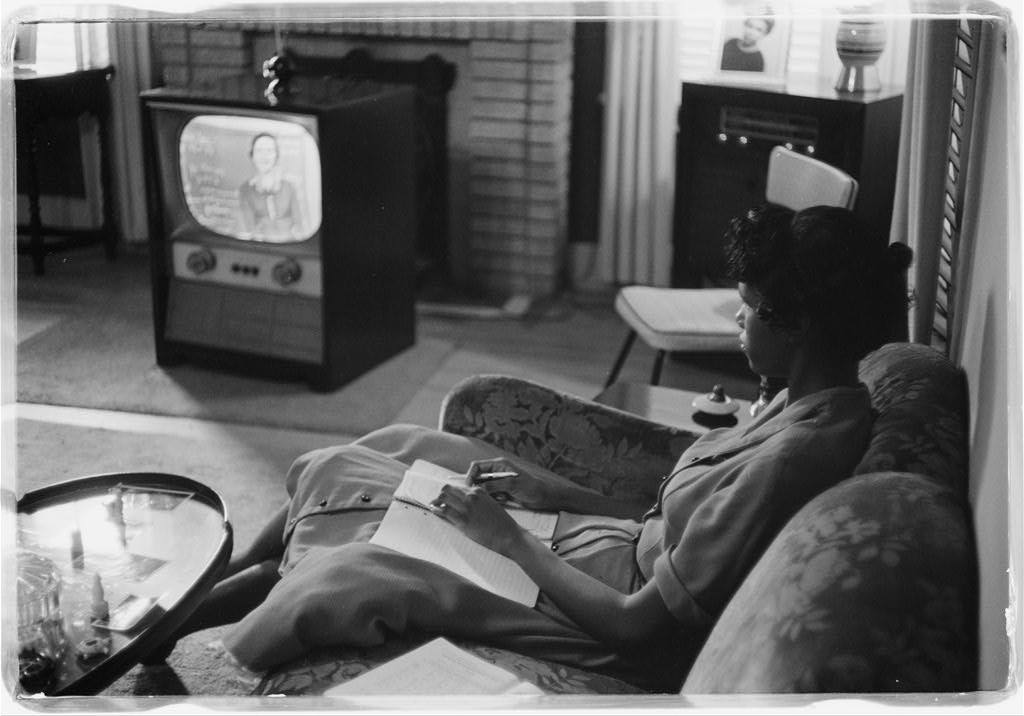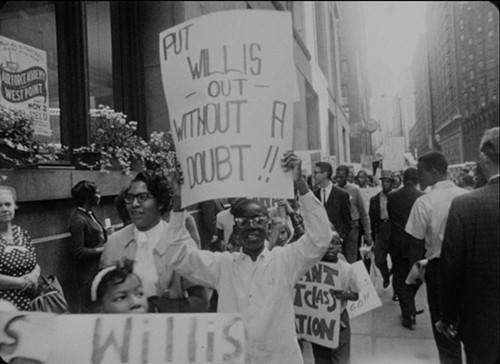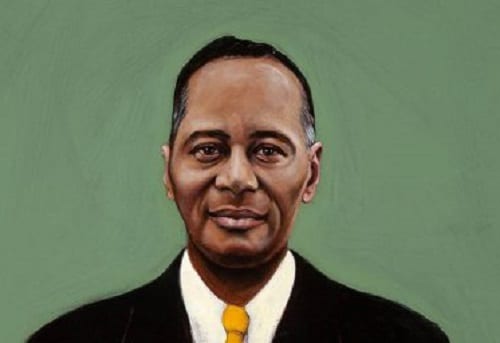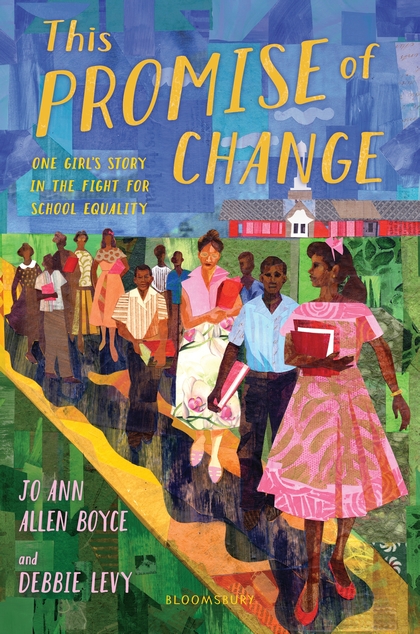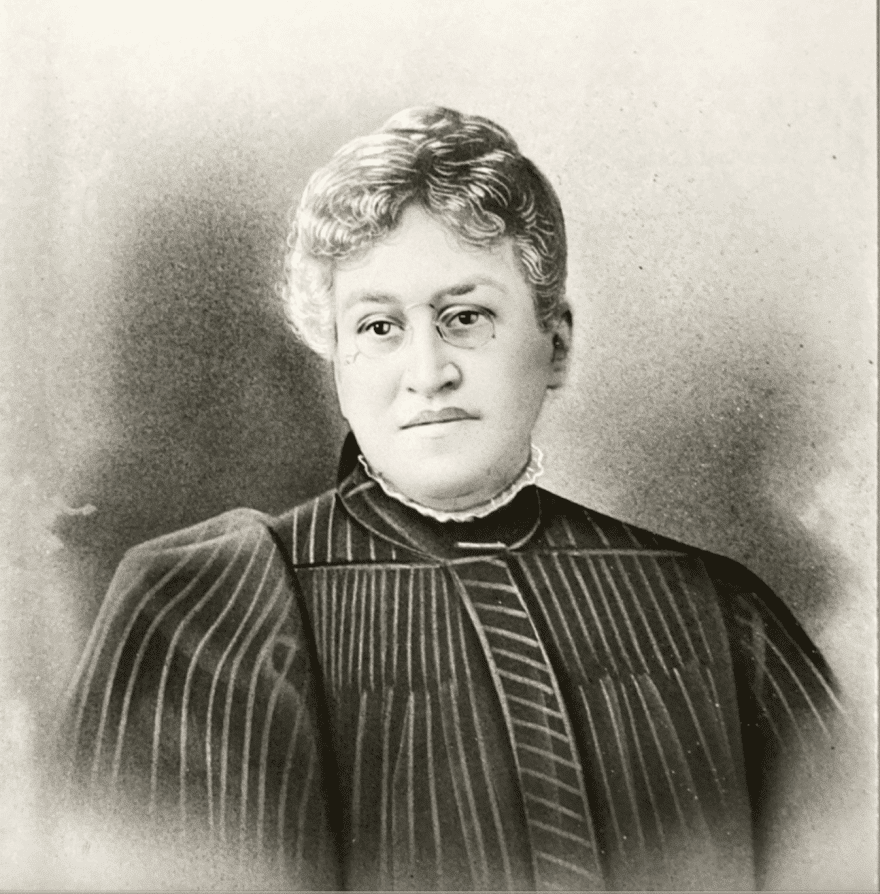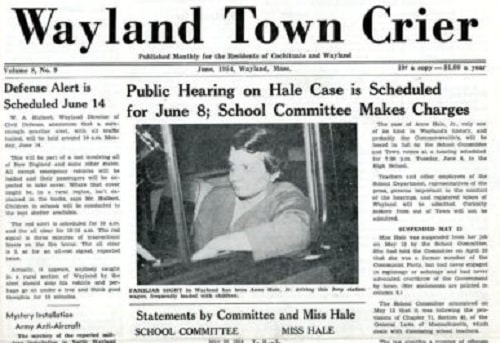Article. By Alison Kysia. 2013.
History of a little-known student resistance movement against McCarthyism and censorship.
Continue reading
Book — Non-fiction. By Myles Horton with Herbert R. Kohl and Judith Kohl. 1997. 167 pages.
History of the role the Highlander Folk School played in the labor and Civil Rights Movements.
Continue reading
Nearly 500 white men destroyed the integrated Noyes Academy in Canaan, New Hampshire.
Continue reading
Five students from Indiana University at Bloomington (IU) started the Green Feather Movement to protest censorship.
Continue reading
Delegates gathered in Montgomery, Alabama, to draft a new state constitution during Reconstruction.
Continue reading
Book — Non-fiction. By National Museum of the American Indian. 2007. 256 pages.
Introduction to Native American history and contemporary culture.
Continue reading
The White Citizens Council and Ku Klux Klan launched full-scale rioting in Clinton, Tennessee in response to school desegregation.
Continue reading
The Grenada, Mississippi school board shuttered school instead of opening its doors to registered Black students.
Continue reading
Mae Bertha and Matthew Carter enrolled their children in schools in Sunflower County, Mississippi that had been illegally denied to African Americans. In retaliation, they were evicted from the land they sharecropped and their home was riddled with bullets.
Continue reading
ASALH was established by Carter G. Woodson and Jesse E. Moorland.
Continue reading
Governor Orval Faubus closed all Little Rock, Arkansas public schools for one year rather than allow integration.
Continue reading
The Chicago Public School Boycott, also known as Freedom Day, was a mass boycott and demonstration against the segregationist policies.
Continue reading
The Supreme Court ruled that schools in the U.S. had to desegregate “immediately,” instead of the previous ruling of “with all deliberate speed.”
Continue reading
Mrs. White of the Indiana Textbook Commission called for a ban of Robin Hood in all school books for promoting communism.
Continue reading
Book — Non-fiction. By Jo Ann Allen Boyce and Debbie Levy. 2019. 320 pages.
Told from the perspective of Jo Ann Allen, this book tells the story of twelve Black students who integrated Clinton High School in Tennessee in 1956.
Continue reading
Book — Non-fiction. By Jarvis R. Givens. 2021. 320 pages.
Details the long assault on Black education that occurred from the period of enslavement through the life of one of the founders of the Black studies tradition, Carter G. Woodson.
Continue reading
The Michigan Supreme Court ruled in favor of school desegregation in the case of Joseph Workman v. the Detroit Board of Education, almost 90 years before the United States’ landmark Brown v. Board of Education.
Continue reading
At the height of the anti-Communist Red Scare, Massachusetts second-grade teacher Anne P. Hale Jr. was removed from her position because of her prior membership in the Communist Party.
Continue reading
Shaw University was established as a co-ed campus with support from private donors and the Bureau of Refugees, Freedmen and Abandoned Lands. It is the second oldest HBCU in the South.
Continue reading

